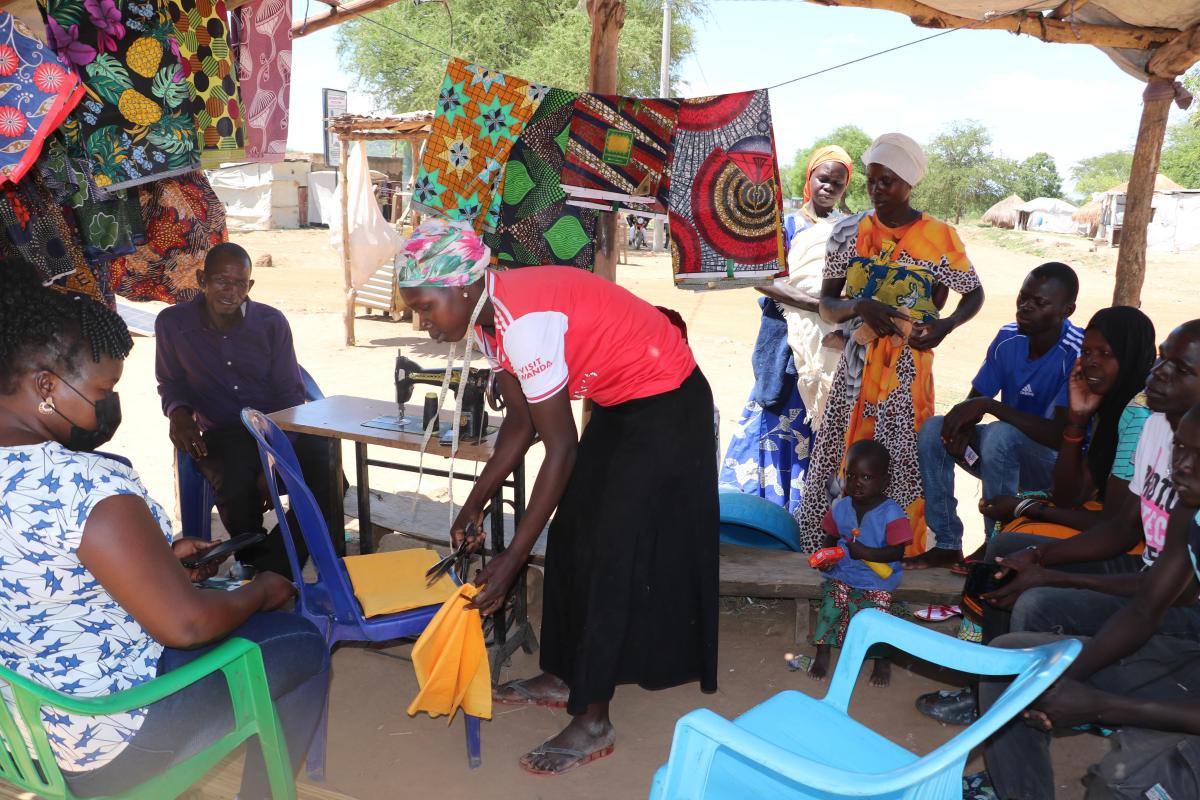Uganda: Skills development enables Queen to establish a clothing business
Few years ago, Queen Misila, a Ugandan national residing in Yumbe district would struggle to believe she would one day be an entrepreneur.
The 24-year-old’s fortunes however changed following a 3-months training in tailoring where she also acquired entrepreneurial skills.
Her training was sponsored by Enabel under the Support to Skilling Uganda (SSU) project and delivered by the Norwegian Refugee Council.
Misila used her newly acquired skills and savings to start a business which she named “Misila Clothing Enterprises”. She makes clothes of various designs and fashions.
"The training made me produce quality work and through the word of mouth, my customers have marketed my services,” the cheerful third-born explains.
Misila says the demand for her products is high and the future looks bright. She can now look after her family.
“I make average weekly sales of 200,000 shillings. Out of this, I save 12,000 shillings,” she adds.
And there is a secret for her business success.
“For those that buy cloth material from me, I offer a discount of 5000 shillings off the labour costs. I charge the rest 15,000 shillings if they buy the material elsewhere,” she reveals.
Her business like, others, also encounters challenges. The biggest challenge is limited capital to further expand the business. Although she managed to get a loan, it is inadequate. The cost of transporting materials from Arua to Yumbe is also high.
“I must confess that I previously worked on losses because of the transport to and from Arua,” she says.
But Misila has big plans for the future. The mother of 3 wants to expand the business.
She recently acquired a loan from her Village Saving and Loan Association to buy extra clothes for sewing. Additionally, she wants to replace the sewing machine since it’s frequently breaking down making her incur high repair costs.
The SSU project aims to enhance the employability of refugee and host community youth, especially women and girls through vocational training and entrepreneurship skills to improve their standard of living. More than 4000 people have been trained to date. The project is funded by the European Union Emergency Trust Fund.
Laatste nieuws van dit project
Geen nieuws

